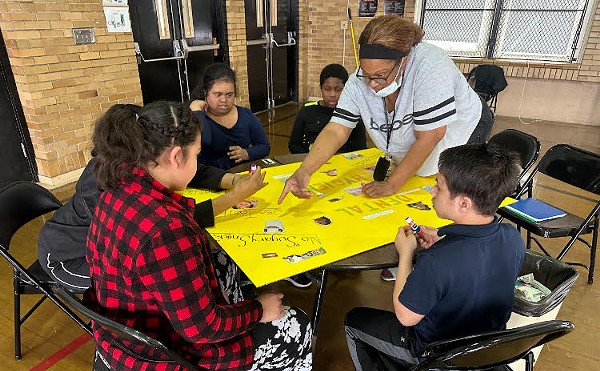It’s been an unexpectedly cold and cruel year. Too suddenly and too soon, we lost legends of literature, poetry, stage and screen including Philip Seymour Hoffman, Maya Angelou, Robin Williams and Joan Rivers. A week ago, director Mike Nichols succumbed to a heart attack. Mercifully, these bigger-than-life luminaries survive through their masterpieces. What’s more, we honor and enliven them for as long as we remember what they meant — and sustain change.
I nearly peed myself the first time I saw my favorite film, “Who’s Afraid of Virginia Woolf?” in 1986 — 20 years after it shocked America. I was house-sitting in Glenview for the Solomons, my extended Jewish family, late one night when the Nichols-directed film came on Showtime. The opening, with the echo of Elizabeth Taylor’s lustful laughter, deep-fried me to my seat. Then the co-alcoholic carnage commenced as Taylor’s Martha verbally castrated her husband George (Richard Burton) and tried to seduce Nick (George Segal) despite the presence of his puking wife Honey (Sandy Dennis). In retaliation for Martha bulldozing boundaries, George buried her favorite fantasy, inducing her to collapse in hysteria. The horrified guests hobbled home, leaving the codependent couple alone together.
The psychodrama’s popular and critical acclaim vindicated the shared vision of its creators. Filmed in black and white, it left Edward Albee’s award-winning script largely intact — including its risque content. After the repressive, anti-intellectual 1950s, artists demanded the freedom to be candid and realistic.
Nichols relied on his impeccable instincts to mitigate risks. In 1967, he boldly challenged the traditional boy-next-door image of the leading man by casting Dustin Hoffman in “The Graduate.” The choice seemed consistent for a coming-of-age narrative highlighting the clash between the emerging counterculture and conventional wisdom. Art imitates life, after all — and Hoffman was a hit.
Actors and playwrights revered Nichols because he encouraged them and trusted their intuition. Instead of directing them precisely how not to play a character or revise a storyline, he often issued skeletal feedback, deferring to their judgment to flesh it out. He believed in following mysteries and facilitating an organic creative process. Intimate, confessional rap sessions often yielded magic. Hoffman drew on his first awkward make-out session, at the age of 15, in groping Mrs. Robinson (Anne Bancroft). Upon her comic indifference to his robotic breast clutch, he feared that he would cackle. So he detached, turned his back to the camera and stepped downstage to bang his head against a wall. Nichols loved surprises — and that one made the final cut.
By humanizing actors — exhorting them to plumb their darkest depths and deliver stardust — he humanized audiences for half a century. Despite a few lackluster productions, he was lavishly adored and awarded.
“The Graduate” earned Nichols an Oscar. He also won nine Tony Awards, four Emmys and a Grammy. On the occasion of Nichols’ AFI Life Achievement Award, Hoffman previewed his legacy: “You’re a real artist down to your toes, because you’re insanely courageous. You took a chance on me — and you never should have done that.”
In a separate ceremony, Meryl Streep told Nichols, “You have created a quality, an essence that is composed of wit, grace, outrage, delight, skepticism and true love. And in doing so, you have shown us how a person can become essential. You’re one of our era’s essential artists, Mike.”
Nichols said of his favorite memory, “It’s your life. ... It’s what I love as much as, in fact, my family. And I’m very lucky.”
His romantic life changed more than 25 years ago, when he married the love of his life, Louisvillian Diane Sawyer of ABC News. The brainy best friends shared a penthouse apartment on Fifth Avenue in Manhattan. They deserved each other, routinely swooning at each other across crowded rooms.
Nichols was a star-maker whose death left a hole in the heart of Broadway. Last Thursday on ABC’s “The View,” Whoopi Goldberg, who credits Nichols for her breakout TV stand-up act, was too grief-stricken to speak. The New York Times captured his wit, charm and savvy in a vast appreciation headlined, “Mike Nichols, Urbane Director Loved by Crowds and Critics, Dies at 83.”
Nichols, more than anyone except perhaps columnist Jim Welp, personifies the qualities we celebrate in our LEO slogan: “Edgy, urbane and sophisticated, with a dash of wit and an authoritative voice.”
The last truth you should know about this beautiful, brilliant soul who improved America forever: He was an immigrant.





